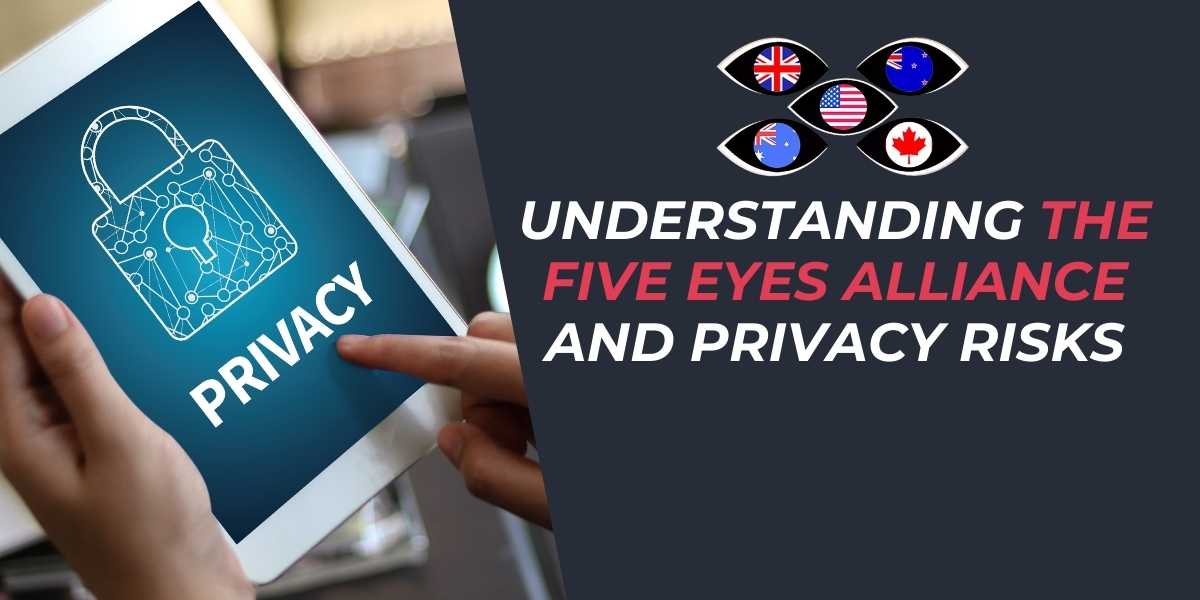Understanding the Five Eyes Alliance and Privacy Risks
The Five Eyes Alliance is a significant intelligence-sharing partnership involving five major English-speaking countries: the United States, the United Kingdom, Canada, Australia, and New Zealand. Established in the aftermath of World War II, this alliance focuses on sharing signals intelligence to enhance national security. However, as we move into 2024, this powerful alliance raises critical questions regarding privacy and civil liberties.
The Foundation of the Five Eyes Alliance
The history of the Five Eyes (FVEY) alliance can be traced back to the post-war era with the 1946 UKUSA Agreement. Initially intended for cooperation in signals intelligence, it has since developed into a significant element of global intelligence and surveillance networks. This agreement laid the groundwork for extensive information and resource sharing, aiming to counter global threats and bolster collective security.
Member Countries and Their Roles
The nations involved in this alliance include:
- The United States
- The United Kingdom
- Canada
- Australia
- New Zealand
These countries collaborate extensively on intelligence matters, pooling resources and sensitive information to address global challenges.
Extended Alliances: Nine Eyes and 14 Eyes
The Five Eyes alliance has been expanded to include additional networks such as the Nine Eyes and 14 Eyes. The Nine Eyes includes the original Five Eyes countries plus Denmark, France, the Netherlands, and Norway, while the 14 Eyes further extends with Germany, Belgium, Italy, Spain, and Sweden. These alliances enhance intelligence-gathering capabilities but also trigger discussions about privacy impacts.
Implications for Privacy and Civil Liberties
While the Five Eyes alliance contributes significantly to global security, it poses a potential threat to privacy. The revelation by Edward Snowden in 2013 highlighted extensive data collection activities, raising concerns about the delicate balance between security and individual rights.
Amidst the digital age, our digital footprints—emails, calls, online shopping, and social media activities—are exposed to potential surveillance. This situation leads to ongoing debates about privacy rights and government powers, emphasizing the importance of maintaining privacy as a core element of democratic society.
Mitigating Surveillance
If the notion of being under constant surveillance is worrisome, there are measures you can take to enhance digital privacy. While complete invisibility to intelligence services isn’t guaranteed, implementing these strategies can make notable differences:
- VPN Usage: Use Virtual Private Networks to obscure your digital presence.
- Encryption: Secure communication using applications with end-to-end encryption.
- Incognito Browsing: Leverage privacy-focused browsers such as Tor.
- Mindful Social Media Utilization: Regularly review privacy settings and avoid oversharing.
- Device Security: Ensure devices are secured with strong passwords and frequent updates.
These steps won’t render you completely undetectable, but they will create obstacles for those attempting unauthorized surveillance.
Conclusion
The Five Eyes alliance remains a pivotal force in the global intelligence landscape, ensuring the collective security of its member nations. As we navigate through 2024, understanding its role and implications becomes increasingly important. Balancing national security with individual privacy rights is a challenge that continues to prompt vigorous debate and scrutiny.
| Country | Agency | Role |
| Australia | ASIS, ASD, ASIO | Human intelligence, Signal intelligence, Security intelligence |
| Canada | CSIS, CSE | Human intelligence, Signal intelligence |
| New Zealand | NZSIS, GCSB | Human intelligence, Signal intelligence |
| United Kingdom | MI5, GCHQ | Security intelligence, Signal intelligence |
| United States | CIA, NSA | Human intelligence, Signal intelligence |

